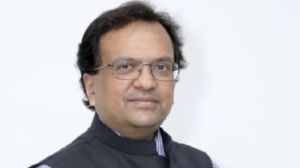Do you have the will to make a will?
You ticker suddenly stops. And you join the ranks of the untimely-dead. As your spirit prepares to move on, you see your tone-deaf wife str...


You ticker suddenly stops. And you join the ranks of the untimely-dead. As your spirit prepares to move on, you see your tone-deaf wife struggling to play your precious Tull CDs. Your rash 18-year-old son is burning the tyres of your gleaming Corolla, and is that a scratch awwwaaaaagh! you see on the bonnet?
And you regret not having followed the advice of this newspaper and written a Will. Told you. You should8217;ve made a Will when you could. Too late now. Better luck next birth.
We associate Wills with assets in the region of Rs 5,000 crore, but even we lesser mortals do need Wills. These become even more important as traditionally sacrosanct relationships like between husband and wife, parents and children begin to break down in metropolitan India. In fact, so sure was the Hindu religion of the sanctity of these relationships that there is no mention of any rule that would divide the assets after the death of a person. In the seven financial documents mentioned in the Vedas 8211; partition, gift, purchase, mortgage, agreement, bondage and debt 8211; there is no mention of a Will. It was assumed that the claims of the children and dependants were indefeasible.
The British, along with the Railways, gave India a legal framework in which to view succession and Wills and it was in 1870 that the Hindu Wills Act was passed and it was as late as 1925 that the Indian Succession Act that made it mandatory for Hindus to make a Will in writing and get it attested by at least two witnesses came into force.
But first, why have a Will at all? To dispose off your assets after you are no longer physically there to do it. You may not have crores of assets but an average person does accumulate a lot with the home and its contents, other properties, the jewellery, the cars and financial assets all adding up to a substantial amount. If you die without making it clear who is to benefit from your assets 8211; who will get your precious CD collection, who would get the new Honda City you just bought, who would get the Infosys shares you bought at Rs 300 many years back, they could end up in the wrong hands. If you don8217;t specify a beneficiary, depending on your religion, the relevant Succession Act would come into play and the assets will be divided according to a formula and not your dying thoughts.
Some basic rules of making a will
8226; Write it down. Till 1925 a verbal Will in India was permitted, but since then a valid Will has to be a written down. A holograph Will, or one that has been hand-written by you has the maximum validity in court since the authenticity is beyond doubt.
8226; Make it detailed. Brief Wills may be easier to write 8211; 8216;all my assets go to my wife8217; 8211; but what if there is more than one person who claims to be the wife? When stakes are high different relatives tend to crawl out of the woodwork to lay claim to your precious things. So write in detail about your assets and who should have them. Mention people by name and state the relationship with them unambiguously.
8226; State reasons clearly. If you are going to leave your assets to somebody who is outside the family and you fear that the family may contest your will, give reasons for making such a Will. The court has to actually put itself in the 8216;testator8217;s armchair8217; to understand the intention of the Will-maker, so give it as much information as you can because you are not going to be around to justify your actions. If you have been abandoned by the family and are hence leaving your assets to your favourite niece, say so in the Will and give this reason in clear terms. A one-line Will leaving all assets to the outsider will be less believable than one that gives reasons and logic for leaving a Will that is unconventional or favours the non-natural heirs.
8226; Get at least two reliable witnesses. To be valid a Will has to be signed by two witnesses. These witnesses may be called upon by the court to testify that they were present when you signed the Will. Why are marriages such huge public affairs? So that there are hundreds of witnesses to such an important event. A Will, that is a precursor to your own death, is not something to celebrate and hence the 8216;let8217;s get this over with8217; or 8216;I8217;ll will do it later8217; attitude. But make sure there are witnesses who will not go back on their signatures on the Will.
8226; Get it registered. This is done in a notary public and is not as painful as it used to be. People who have lately got their Wills registered talk of the computerised process at least in some parts of Delhi that do away with the need for expensive touts, takes 40 minutes and 50 bucks.
8226; Make it watertight. Get a doctor to certify that you are of sound mind and under no influence of alcohol or under any coercion when you make the Will.
You like to be in control of your money and life today. Extend that to after you are gone and prevent your hard earned assets from ending up with the wrong people.
- 011 day ago
- 021 day ago
- 0319 hours ago
- 041 day ago
- 051 day ago































